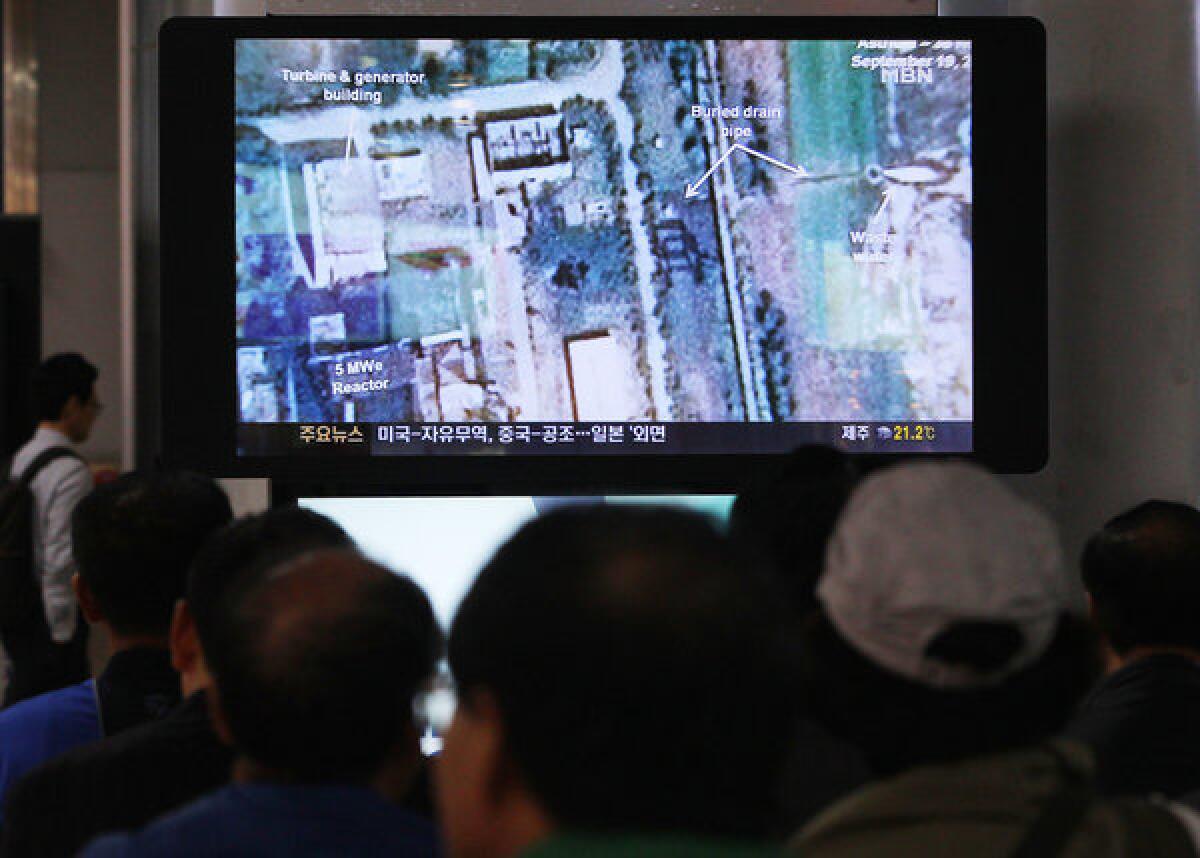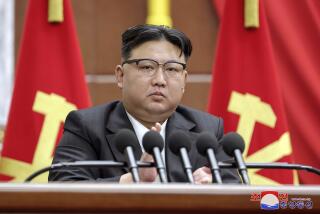South Korea intel confirms North Korean nuclear reactor restart

North Korea has restarted its plutonium reactor in Yongbyon and is producing nuclear energy at the site, South Koreaâs intelligence agency reported Tuesday.
The report to Seoul lawmakers by a National Intelligence Service official confirmed warnings last month by nuclear watchdogs at the U.S.-Korea Institute at Johns Hopkins University, where examination of fresh satellite imagery showed hot water being funneled from the 5-megawatt reactor to a nearby river.
Rep. Cho Won-jin gave South Koreaâs Yonhap news agency details of the closed-door briefing to lawmakers.
The North had idled the graphite-moderated reactor at Yongbyon in 2007 under an agreement it reached in talks with five major nations to get food aid for standing down on its pursuit of nuclear weapons capabilities.
The reactorâs cooling tower was dismantled in 2008 as a show of good faith, but North Korean negotiators walked out of the talks later that year and resumed testing and preparations for arming intercontinental ballistic missiles with nuclear warheads.
âThe reactor is currently being operated to increase the Northâs nuclear capacity,â South Korean national security chief Nam Jae-joon said, according to the Korea Times. Nam also told the National Assembly Intelligence Committee that the North has begun testing engines for long-range missiles, the online newspaper reported.
Scientists at 38 North, a website operated by the U.S.-Korea Institute, had said last month that satellite imagery from Sept. 19 showed âhot waste water being released into the Kuryong River from a recently installed drainpipe, part of a new secondary cooling system completed in summer 2013.â The website said the heated outflow from the reactor, about 55 miles north of Pyongyang, the North Korean capital, wasnât seen in images captured in July, suggesting the reactor restart had occurred since then.
North Korean leader Kim Jong Un vowed in May to resume his isolated nationâs quest for a nuclear arsenal after a sharp increase in acrimony between the two Koreas in the wake of intensified U.N. sanctions. Pyongyang carried out a prohibited missile test in December, the third in four years, and followed in February with the testing of an underground nuclear bomb.
Stepped-up sanctions set off a wave of threats and accusations from the North, with Kimâs government vowing to deter any U.S. or South Korean aggression with a nuclear strike.
Tension again flared with this weekâs scheduled U.S.-South Korea war games, which took the U.S. nuclear-powered aircraft carrier George Washington and other warships from their base in Yokosuka, Japan, to the waters off the Korean peninsula.
North Korea last month unilaterally postponed a reunion of families separated since the 1950-53 Korean War, citing perceived hostile actions by Washington and Seoul.
Disarmament talks involving the two Koreas, the United States, China, Russia and Japan began in 2003 but have been stalled for five years by Pyongyangâs repeated violations of international nuclear nonproliferation agreements.
ALSO:
Second team of chemical weapons inspectors heading to Syria
World Bank: Israeli restrictions cost Palestinian economy billions
Myanmar releases 56 political prisoners on eve of regional summit
Twitter: @cjwilliamslat
More to Read
Sign up for Essential California
The most important California stories and recommendations in your inbox every morning.
You may occasionally receive promotional content from the Los Angeles Times.











